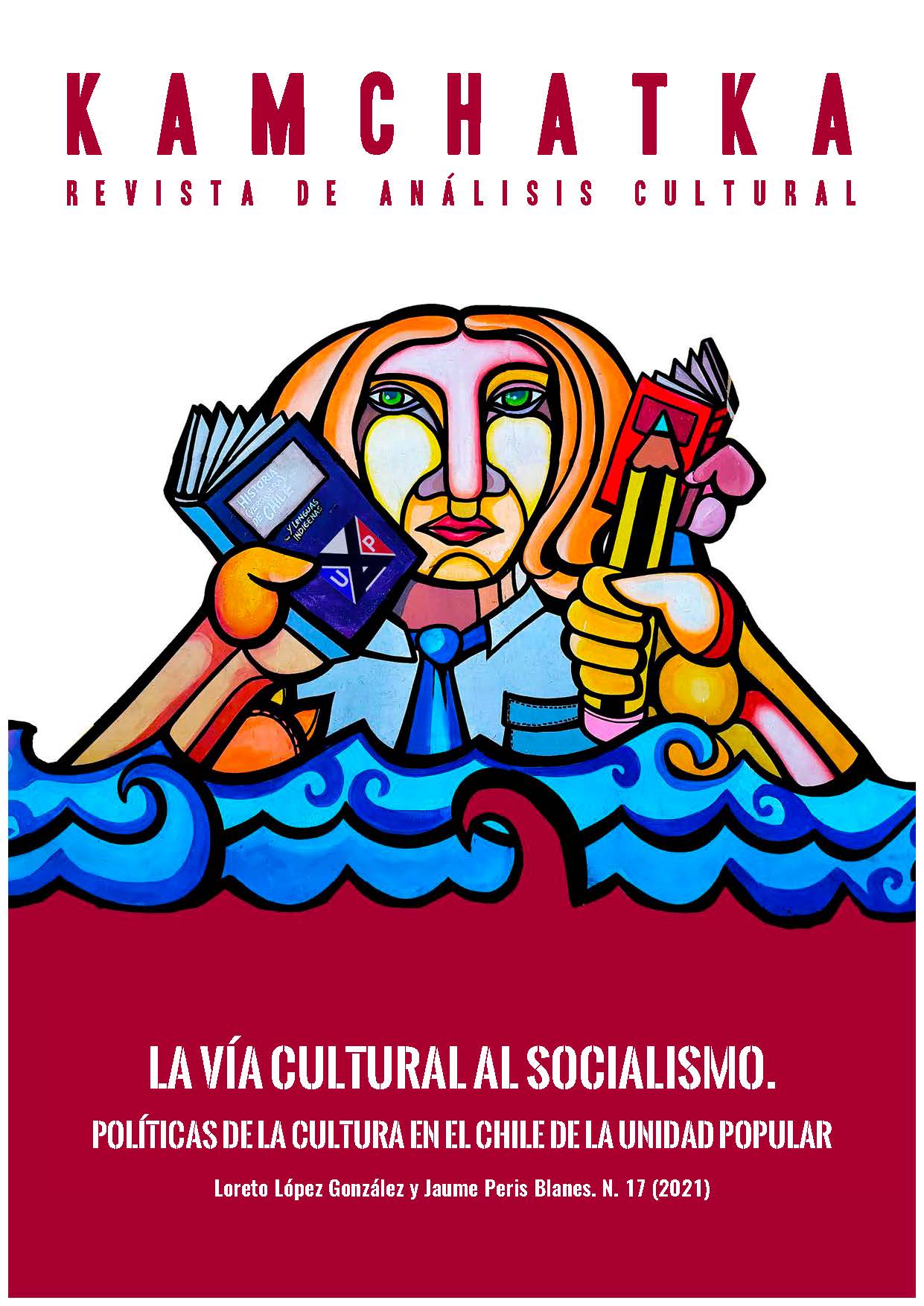Worker and militant theater of the 60’s and 70’s in Chile: internationalist and anti-imperialist scenes building a new world
DOI:
https://doi.org/10.7203/KAM.17.17791Keywords:
Worker’s and militant theater, Popular Unity, internationalism, anti-imperialism, National Popular Theater, New Popular Theatre Abstract
Abstract
This article problematizes the practice of worker and militant theater of the 60s and 70s in Chile as part of the Popular Unity project. There are three central elements of this text: 1) the approach to internationalist and anti-imperialist theatrical political perspectives and constructions of the Latin American left - specifically Chilean - through the Cuban journal Conjunto; 2) the dispute over the conception of the National Popular Theater between the idea of a social pact and those that raise an antagonistic discourse; 3) the approach to the CUT theater and the New Popular Theater as Chilean militant scenes, whose practices ascribe to anti-imperialist theatrical policies of the Latin American left, and to the notion of class of a National Popular Theater.
The workers’ and militant theater during the Popular Unity, through the reconfiguration of the scenic productive modes and the ways of imagining, was an active part of the process of the working class that materially and subjectively threw itself towards the construction of a new world, of another possible life.
 Downloads
Downloads
 References
References
Aguirre, I. (2019). Teatro Experimental Popular Aficionado (TEPA). Santiago: Ediciones JVG
Benjamin, W. (2008). Tesis Sobre el concepto de Historia y otros fragmentos. México D.F: Itaca.
Bértolo, C (ed.) (2012). Antología Lenin. El revolucionario que no sabía demasiado. Madrid: Catarata.
Bravo-Elizondo (1991). Raíces del Teatro Popular. Guatemala: Impresos D&M
Chesney, L. (2007). Teatro en América Latina: Siglo XX. Caracas: Universidad Central de Venezuela.
Colección Revista teatral Conjunto: (1964) 1-3; (1967) 4-5; (1968) 6-7; (s.f.) 8; (s.f.) 10; (1973) 16.
Colección Revista Punto Final (1967) 19-23.
De Vicente, C. (2013) La escena Constituyente. Teoría y práctica del teatro político. Madrid: Centro de documentación crítica.
Escalona, C (2013) Nota periódico chileno La tercera.
Fernández, F (ed.) (1999). Ernesto Che Guevara, escritos revolucionarios. Madrid: Catarata.
Jelin, E. (2002). Los Trabajos de la Memoria. Madrid y Buenos Aires: Siglo XXI Editores.
“La Maldición de la palabra, estreno del Teatro Nuevo Popular”. El Siglo (1971). Archivo de Referencias Críticas.
“La Palabra una arma peligrosa”. La Nación (1971) . Archivo de Referencias Críticas.
“Mañana teatro popular”. Puro Chile (1971). Archivo de Referencias Críticas.
Mouffe, C. (2011). En torno a lo político. Argentina: Fondo de Cultura Económica.
Piña, J (2014). Historia del teatro chileno 1941-1990. Santiago: Editorial Taurus.
Pradenas, L (2006). Teatro en Chile. Huellas y trayectorias. Siglos XVI-XX. Santiago: LOM.
Rancière, J. (2005). El viraje ético de la estética y la política. Santiago: Palinodia.
Recabarren, L. (2005). El socialismo: ¿Qué es y cómo se realizará?.Santiago: CEME.
Restrepo, E. (2012). Intervenciones en Teoría Cultural. Popayán: Editorial Universitaria del Cauca.
Richard, N. (2001). “Presentación”. Richard, Nelly (ed.). UTOPÍA(S) 1973-2003 Revisar el pasado, criticar el presente, imaginar el futuro (pp. 11-16) Santiago: Universidad Arcis.
Sarlo, B. (2001). “Prólogo” a Raymond Williams. El campo y la ciudad. Buenos Aires: Paidós.
Secall, J (2018). Entrevista realizada por Patricia Artés, en el marco de la investigación del proyecto: El asalto político a partir de lo estético: el teatro político metropolitano de la época de sesenta. Folio 438889, financiado por el Fondo Nacional de Desarrollo Cultural y las Artes, FONDART, convocatoria 2018. Responsable Cristian Aravena Aravena. Santiago de Chile.
Verzero, L. (2013). Teatro militante. Radicalización artística y política en los años 70. Buenos Aires: Editorial Biblios Artes y Medios.
Villegas, J (2006). “La representación de los sectores campesino en el teatro de comienzos de siglo: el caso de Antonio Acevedo Hernández”.
Downloads
Published
How to Cite
-
Abstract937
-
Artículo PDF (Español)666
Issue
Section
License
This journal provides an immediate free access to the content on the principle that freely make investigation available to the public, which promotes an increased global knowledge exchange.
Unless otherwise indicated, texts published in this journal are under the license Attribution-NonComercial 4.0 by Creative Commons. These texts may be copied, distributed and publicly communicated whenever the publication’s author and title are quoted and whenever they are not used for commercial purposes. In any case, intellectual property of the articles and its potential economic rights entirely belong to its authors.
The full license can be consulted on https://creativecommons.org/licenses/by-nc/4.0/. We encourage authors to disseminate papers published in Kamchatka. Journal of cultural analysis electronically, in institutional digital repository or in their websites.





